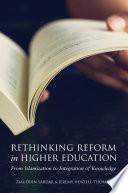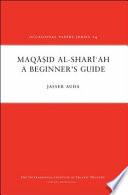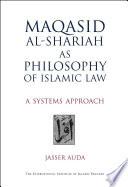
الدليل المبسط في مقاصد الشريعة (Kurdish Language)
يركز هذا البحث على خصائص مقاصد الشريعة في القرآن الكريم، وتطورها التاريخي، وإسهامات أهم العلماء المسلمين فيها، والطرق المختلفة التي اتّبعوها في تحديد المقاصد والتعريف بها، وكذلك العلاقة بين الاجتهاد والمقاصد والطرق التي يمكن للمقاصد من خلالها توسيع آفاق الاجتهاد.
- ISBN 13 : 1642053236
- ISBN 10 : 9781642053234
- Judul : الدليل المبسط في مقاصد الشريعة (Kurdish Language)
- Pengarang : محمد هاشم كمالي,
- Kategori : Religion
- Penerbit : International Institute of Islamic Thought (IIIT)
- Bahasa : un
- Tahun : 2012
- Halaman : 54
- Google Book : https://play.google.com/store/books/details?id=QQEHEAAAQBAJ&source=gbs_api
-
Ketersediaan :
يركز هذا البحث على خصائص مقاصد الشريعة في القرآن الكريم، وتطورها التاريخي، وإسهامات أهم العلماء المسلمين فيها، والطرق المختلفة ...









